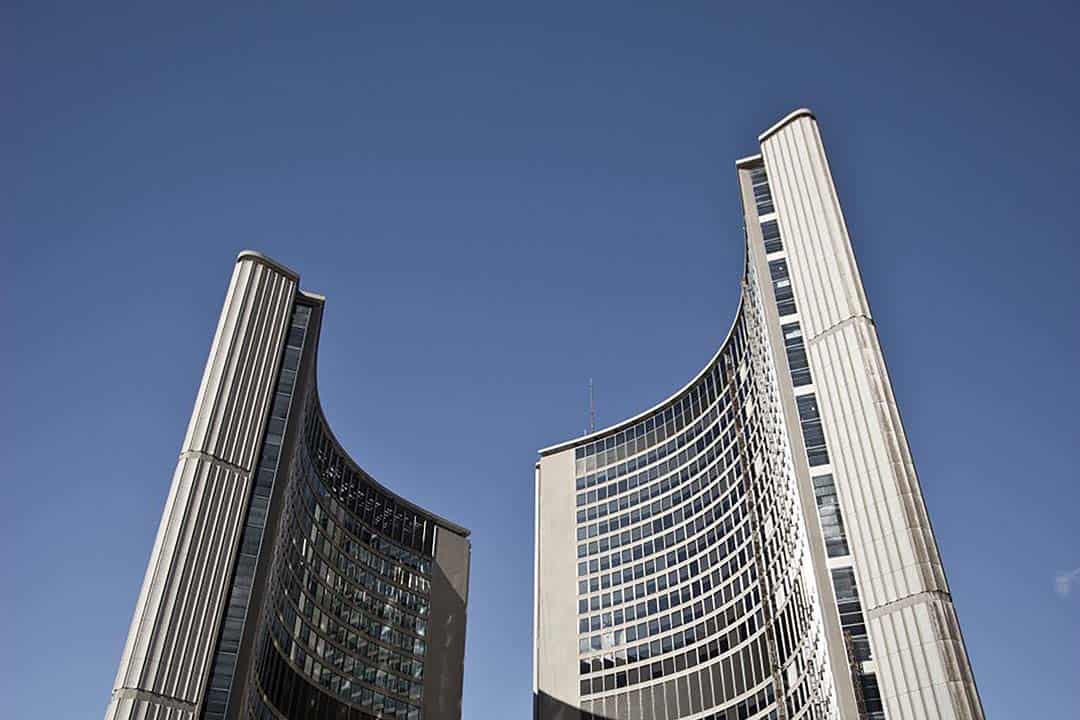I was in a workshop when I heard that John Tory resigned. A jolt of excitement ran through me. With urgency, I called my partner, barely able to get through my sentences as I told him the news. He felt it too: this was a huge opportunity.
I had been in the organizing space for a year, fighting for the federated colleges to divest for fossil free research and cutting-off ties between the UTSU and Royal Bank of Canada, but my partner never got involved. He has progressive views and wanted to see change happen in the city and country, but life is busy, and it never felt like there was anything he could do about it directly. This time is different. John Tory is out, and a progressive vision has the chance to step in.
As organizers, most of the work we do is fighting the small battles, trying to chip away at the large-scale problems our city faces — unaffordable housing, underfunded public transit, climate change, lack of support for people with addiction and mental illness — in hopes that our efforts will lead to change. It is not very often that one event — maybe even a handful of votes — has the opportunity to directly change the course of our city for decades: we have a chance to change things.
Local politics are where we possess the most power
As youth in Toronto, we live in a culture that incessantly focuses on national and international politics; people are more likely to know who the president of the United States is than their own city councillor. But our lives are directly shaped by local politics as housing, transit, police surveillance, and green space are all local decisions. Many of the programs we take for granted started at a local level; local politics shape our lives, and Toronto’s politics is closely watched throughout Canada. Moreover, local politics is where we possess the most power.
National politics in Canada can be frustrating. Sometimes, it feels like an endless stream of corporate triumphs, as the interests of the wealthy and powerful public figures prevail in election after election. On a local level, however, elections can and have been determined by just a few votes. For instance,Chiara Padovani — a progressive candidate challenging the incumbent on city council in Ward 5 — lost by only 94 votes in the last municipal election. Every last effort we make could be the deciding factor for whether we would be able to purchase a home someday, afford rent, or have green spaces and city planning that is not just designed for the most privileged residents. Whoever we elect will likely be in office for at least the next decade. This is our chance to change things.
The core problem of local political elections
Local politics tend to have low turnover rates. We reelect the same people every election — and as rents soar to record heights, we keep electing landlords and homeowners, even though almost half of Torontonians are renters. Of course, Toronto is not unique. Municipal elections across Canada have been plagued by low turnover for decades.
John Tory’s resignation offers an unprecedented opportunity; its effects will be formative for decades to come, as doors are wide open for change with no incumbency to protect the establishment candidate. As students, we live with the consequences of local politics; the lack of affordable housing, the scourge of developers buying up land, the decreasing funding towards public transit, and the increasing funding towards the police, climate change and environmental issues. The importance of this election cannot be overstated. There are no second chances in politics.
The key to change: community
Young people have altered the course of politics before. We were instrumental in the fight for key policy breakthroughs like the introduction of social security in 1935 in the US and Canadian universal healthcare in 1984. We have a chance to reclaim our seat at the table after all that has been taken from us by waves of neoliberal governments disinterested in making any strong progressive strides. It might be 20 more years before another achievable mayoral election is held.
Our generation has had to live with the consequences of our parents and grandparents’ political choices, but things don’t have to stay the same. Our political realities and socio-economic systems have changed a lot throughout history, and they will no doubt continue to do so. We can make new choices and set forth a different course for the future. It is time to take action and express our political choices. Please, help your friends make voting plans, call everyone you know to remind them to vote, knock on doors, phone bank for a candidate, and vote. Excitement, energy, and engagement have a way of spreading, filling in the space in our homes and communities, blossoming into something so much more. Caring is a radical act.
Amy Mann is a second-year student studying mathematics. She is an organizer with the Climate Justice U of T, VUSAC Sustainability Commission, and the coordinator of U of T Votes, a university-wide campaign to reduce barriers for students to vote in the 2023 Toronto municipal election (follow @uoft.votes for more information).


